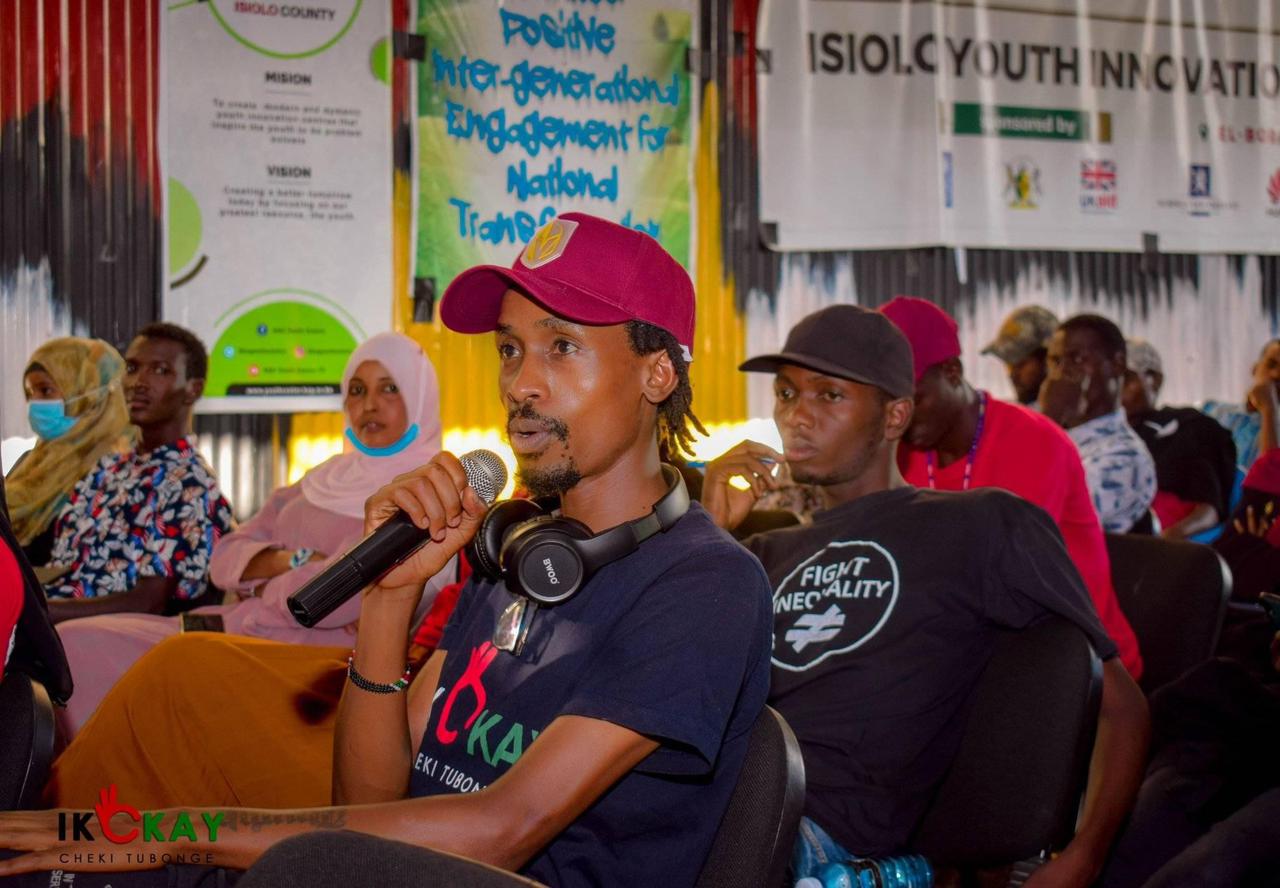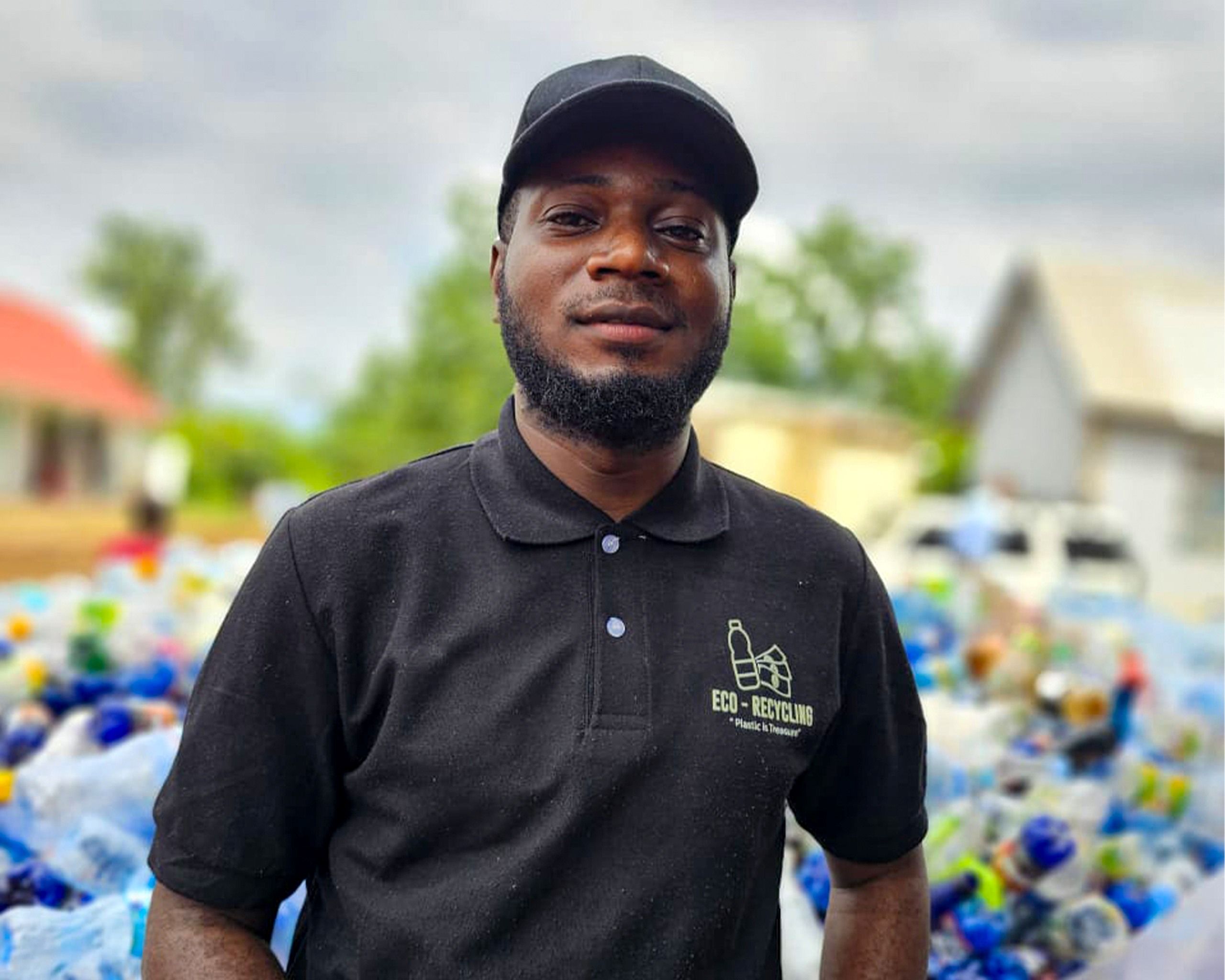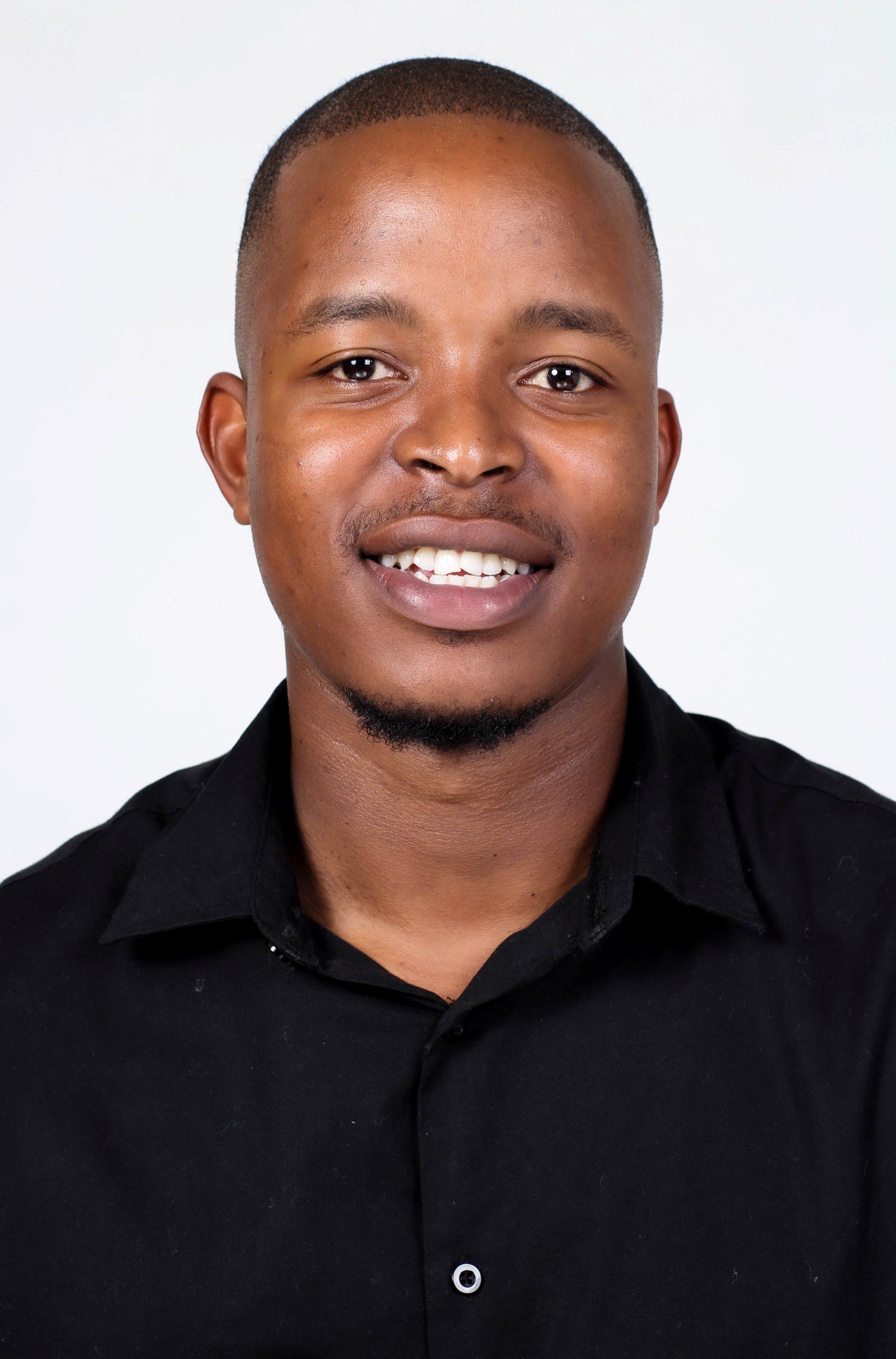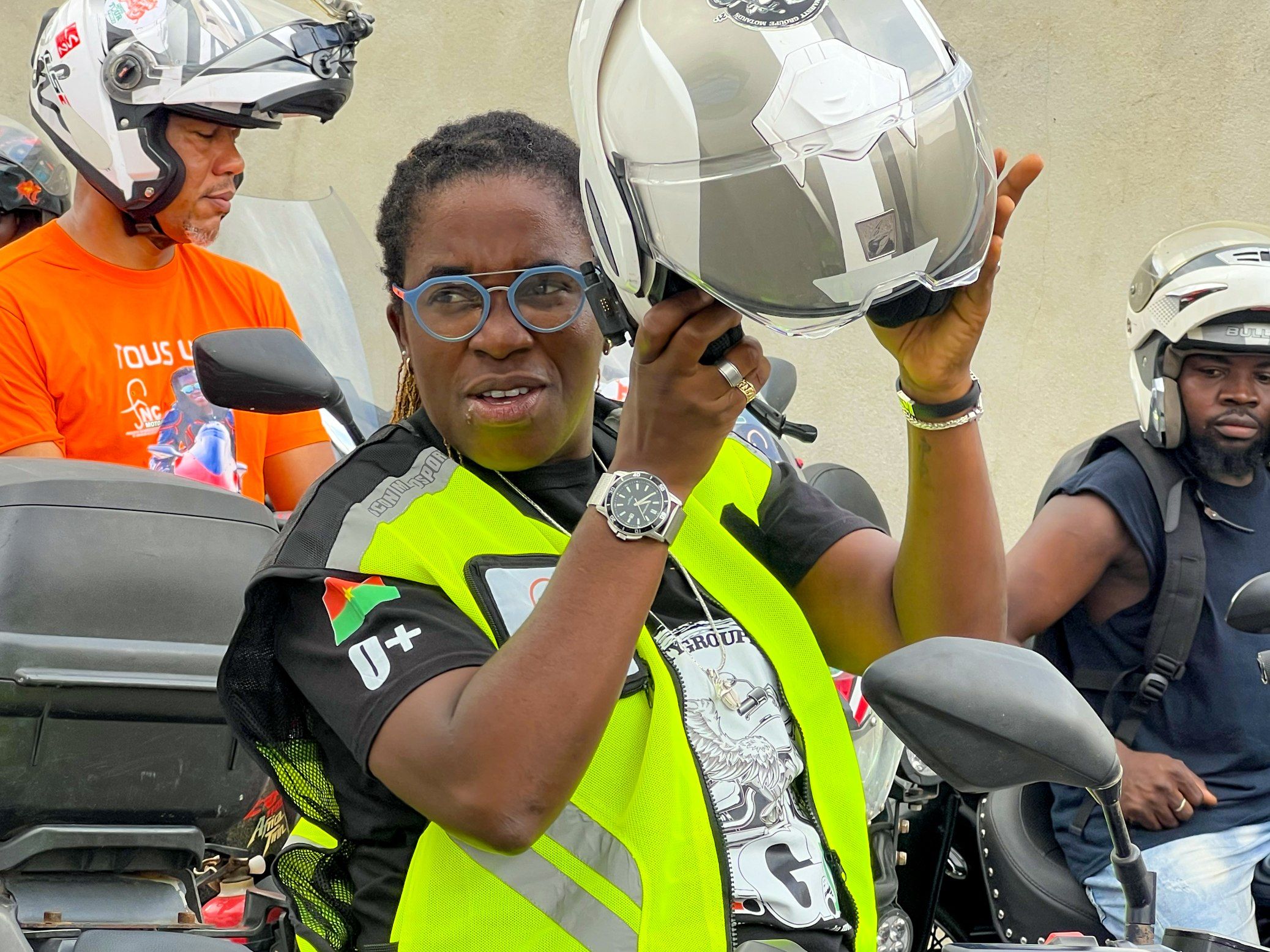You know that famous line in Shakespeare’s Romeo and Juliet? The one that goes like: What’s in a name? That which we call a rose by any other name would smell as sweet. Well, one Edwin Thuranitha, fondly known as Thurah lives to refute it. So, what's in his name?

Who is Thurah?
Among the Ameru community, the name Thuranitha means “organiser” and that is exactly what Thurah has grown to be. When he isn’t organising film and photography sets, he is organising tree-planting exercises and cycling expeditions.
He wears many hats, Thurah. Sometimes he likes to wear a beret emblazoned with the face of the late Musa Mwariama (a freedom struggle fighter) perhaps as a testament to his fighting spirit.
“Despite all his gallantry and selflessness, I think that Mwariama is largely an unsung hero. This is my small way of immortalising him,” he says when I ask him about his connection to Mwariama. “The name Mwariama means ‘truth teller’ and that is what I strive for. To find comfort in the truth,” he adds.
Like his idol, Thurah has a deep penetrative gaze that seems to bore into his interlocutor, a bushy beard crowding his mouth and graceful dreadlocks to boot. A point of departure, however, is that while rifles and simis were the choice weapons for Mwariama, Thurah wields art and sports as the weapons for his campaign. Why art and sports?
“I am strongly for the idea that art shouldn’t be merely used for entertainment as is largely the case presently. Because of its diversity and ability to appeal to multiple senses, art wields much more power than we realise to drive change. On the other hand, sports are engaging and somewhat liberating. We are constantly exploring the intersection between the two,” he says, a tinge of effusive passion evident from the way he leans on his words.
He intends to further inform the mental health conversation in Kenya and that is part of the reason why he formed ikOkay Africa – a mental health organisation dedicated to building better lives for the growing numbers of Kenyans affected by mental illnesses. However, Thurah’s story does not start with IkOkay. Where does it start?

The birth of ikOkay Africa: Before
After graduating from university in 2016, Thurah threw himself headlong into film and Art, staging photo exhibitions and taking part in advocacy campaigns. Driven by his vision, he set out to craft his own projects in a way that he felt aligned with his future goals. First, there was Wild Pick – an art advocacy campaign against poaching. Wild Pick would collapse after his partners pulled out giving way to One Nation – another creative arts advocacy campaign that preached peace and unity in the run-up to the 2017 general elections. With the elections done, Thurah put up yet another project called Sanaa Kikwetu whose objective was uplifting and giving rising artists from his home background of Meru a platform to showcase their talents. Everything seemed to be smooth sailing with Sanaa Kikwetu hitting milestone after milestone until 2020, the annus horribilis, hit.
As the world reeled from the effects of the COVID-19 pandemic, the ship that was Thurah’s life seemed to have hit an iceberg and was fast sinking. First, the restrictions on movement and the ban against public gatherings meant that his work with Sanaa Kikwetu was impossible. Consequently, Thurah, a new father, found himself solely responsible for raising his child after separating from the mother following a disagreement.
With the odds heavily stacked against him and the anxiety that had gripped the world at the time getting to him, Thurah fell into an abyss. It would seem as though his world had spun off its axis, and he engulfed in monumental eternal darkness. Often he would feel as if he was trying to clutch at some unreachable object. Other times he felt as though his back was saddled with a heavy load while some other times he would experience shortness of breath almost as if he was being crushed between the hackneyed rock and a hard place.
“Looking back, I think that my daughter came into this world at an opportune time. She gave me the will to keep hanging on during a very dark period of my life,” Thurah says.
Out of curiosity, Thurah attended a meeting convened by Kenya Ni Mimi – a youth empowerment initiative – at El Boraan Resort and Spa in Isiolo town. There he would hear former Nairobi Women Representative, Rachael Shebesh, recount her experiences with Bipolar disorder. Interestingly so, Shebesh kept repeating the phrase Iko Okay Not to be okay. It is this phrase that would become Thurah’s key takeaway from the meeting.
“After that meeting, I was able to define what I had been going through. I had long been suffering from depression,” he says.
In the days following the meeting, Thurah wrote down Shebesh’s phrase and kept repeating it, as a way of affirming himself but ended up creatively truncating it to ikOkay. Voila!
The birth of ikOkay Africa: After
With the realisation that the pandemic’s aftermath had led many to a dark place as he had been, Thurah had a Eureka moment. He now wanted to help other folks to avert drifting and falling into the dark place he had been as well as help the already afflicted ones to find help. It was then that ikOkay Africa was born.
“IkOkay Africa is a movement built around raising mental health awareness through building communities, art, football, cycling and environmental protection,” Thurah says emphatically.

Thurah believes that too many people spend unhealthily long periods glued to their devices. He asserts that the constant consumption of data from platforms like X, Snapchat and Facebook leads to information glut, overworking their minds as they try to process too much information at once.
“Because Social Media allows people to put their lives out there, there’s the constant need to compare our lives and lifestyles with what we see online. The net effect of all this is that we tend to live too much in social media spaces and in our heads forgetting to actually live and make meaningful connections with the people around us. Now that, compounded with the daily pressures of life destabilises our mental health,” Thurah offers before adding, “At IkOkay Africa we are about getting people to interact, share experiences and make meaningful in-person connections while also creating awareness about mental health.”
IkOkay Africa has set cycling as one of its avenues for raising mental health awareness. So far, they have been able to organise three overwhelmingly impactful (in Thurah’s words) cycling editions with a fourth one slated for May at Machakos. For the first edition, Thurah and his compatriots cycled 21 kilometres from Nkubu to Meru town. During the second edition, they covered 42 kilometres around Imenti forest and for the third and most epic edition yet, they did 282 kilometres from Nairobi to Meru.
“Cycling actively engages both the body and mind while being interactive at the same time. I mean, a group of 50-100 of mostly random folks cycling together, talking and sharing experiences, isn’t that beautiful? Moreover, we are very particular about the cycling routes that we choose. We opt for mostly scenic routes steeped in nature. We have a concept called forest bathing which entails getting lost in nature. So, essentially, the idea here is to cycle your thoughts away while benefitting from the therapeutic nature,” says Thurah.
Thurah believes IkOkay Africa’s greatest achievement thus far is connecting numerous mental health victims to professional help as well as offering a safe space for them to share their afflictions. Moreover, Thurah appreciates that human beings’ wellness and prosperity are intricately connected to nature. As such, IkOkay Africa has so far planted 1,200 tree seedlings.
“Our focus isn’t just on planting but rather growing tree seedlings. We partner with the area Kenya Forest Service Stations to ensure that the tree seedlings we plant are well taken care of. The focus is on fruit trees so that the immediate communities also get to benefit directly,” he says.
If there is a big lesson to be drawn from his experiences so far, Thurah believes that it is resilience.
“The collapse of projects that were so close to my heart as well as cycling have cultivated resilience in me. No matter the situation, as long as I am alive, I still have a shot at life,” he says with a lot of surety.
As a victim of mental illness, Thurah advices that mental wellness is a process rather than a destination. He urges that people should, however difficult it might be, find people whom they can confide in whenever they feel weighed down by the issues of life, and once in a while just talk to and unwind together with.
Thurah is adamant that there exists a large gap in the understanding of mental health in Kenya. “Depression often dominates mental health discussions, overshadowing numerous other conditions,” he notes. “IkOkay Africa aims to bridge this gap through awareness campaigns,” Thurah explains.
“Mental health discussions tend to remain abstract. While statistics and publications raise awareness, there’s inadequate practical engagement with the victims on the ground. We are almost never asking ‘What can be done to prevent this?’ or ‘What help do these victims really need?’” he observes. “IkOkay addresses this by encouraging dialogue and sharing experiences, exemplified by the Cheki tubonge safe space initiative.”
Thurah’s parting shot?
Iko okay not to be okay!





